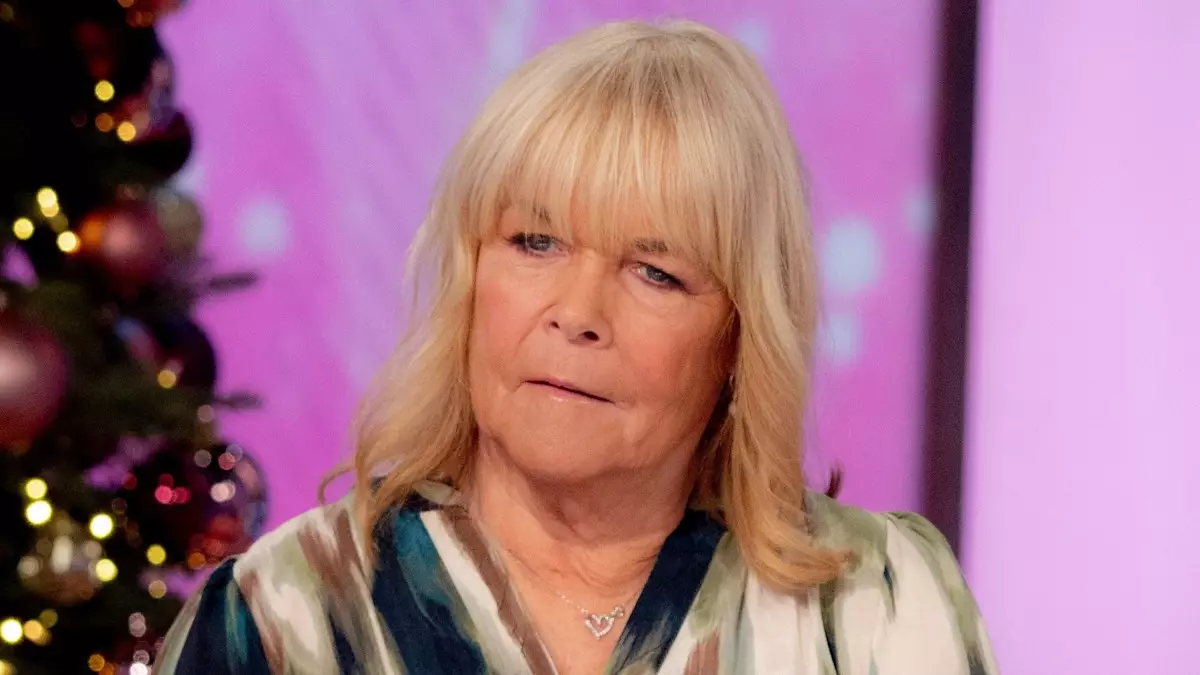The world often witnesses the incredible performances of beloved actors on screen, creating a facade of perpetual joy and success. However, behind the glamour of television and film, personal battles lurk in the shadows. Linda Robson, known for her role in the beloved sitcom “Birds of a Feather,” recently opened up about the ongoing heartache concerning her co-star Pauline Quirke, who has been diagnosed with dementia. This revelation not only underscores the personal challenges faced by public figures but also brings to light the broader implications of a diagnosis that is affecting millions worldwide.
Linda’s profound sadness surfaces as she reflects on her friendship with Pauline, which has lasted for over five decades. The bond they share, established when they were just ten years old, has been tested in ways that neither could have anticipated. Dementia’s cruel nature means that Pauline often struggles to recognize her closest friends or even her own family. Linda’s heartfelt account at the TV Choice Awards reveals a personal connection that resonates with many who have witnessed a loved one’s deteriorating cognitive abilities. The harsh reality that “dementia is terrible” echoes the feelings of countless families facing similar paths.
When comparing dementia to other severe diseases, such as cancer, there is a particular tragedy in the unpredictability of dementia. As Linda powerfully articulated, it can feel as though the individual undergoing this decline is lost to their loved ones. This challenge is compounded by the statistical reality that one in two people may encounter dementia in their lifetime, making the risk seem alarmingly close to many. The unpredictability of the disease leads not only to fear regarding the future but also to a profound sense of helplessness and grief for those caring for individuals like Pauline.
In her reflections, Linda highlights the emotional toll this has taken on her. The simple act of connection, exemplified through FaceTime conversations, serves as both a comfort and a reminder of what has been lost. Linda’s poignant description of Pauline’s smile, only fleeting as the moments pass, captures the essence of deep sorrow amidst fleeting hope. The companionship once marked by laughter and shared experiences is now overshadowed by the reality of Pauline’s condition, providing a stark contrast to their vibrant history.
As Pauline steps back from her professional commitments, a broader conversation about the importance of mental health and support emerges. Her husband, Steve Sheen, articulated a deep respect for Pauline’s legacy in the entertainment industry. With a career spanning several decades, she has not only entertained but inspired many through her work with the Pauline Quirke Academy of Performing Arts (PQA). This institution reflects her dedication to fostering the next generation of talent in the performing arts, further amplifying her impact even in her absence.
Steve’s plea for privacy during this particularly challenging time reminds us that public figures, despite their notoriety, are entitled to the same compassion and understanding we would extend to anyone enduring a difficult journey. The act of prioritizing family over professional obligations serves as a critical reminder that human connections matter most, particularly in times of crisis.
While Linda expresses her reluctance to continue with “Birds of a Feather” without her dear friend, she reveals a desire to produce a tribute that honors Pauline’s rich contributions to British television and her influence on many lives. This sentiment speaks to a broader theme in the wake of adversity: the potential for hope and celebration amidst despair. As they reminisce about a shared past filled with joy, there remains a longing for acknowledgment of the struggles faced by those with dementia and their loved ones.
Linda’s advice for others navigating a similar path emphasizes resilience and the importance of a supportive network. For families dealing with dementia, having a strong foundation of love and care can make all the difference. Her emphasis on Pauline’s strong family support system reiterates how vital it is to surround oneself with those who provide strength and solace during life’s most challenging moments.
While the diagnosis of dementia often casts a shadow over relationships, the narratives that emerge from this struggle encourage compassion, understanding, and hope. Pauline’s journey, as shared by Linda, serves as a poignant reminder of the fragility of friendships and the enduring power of love and support in the face of adversity.

